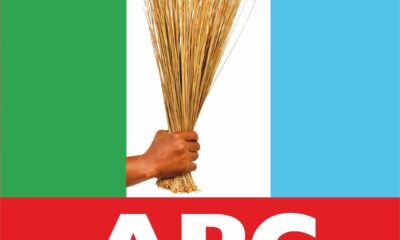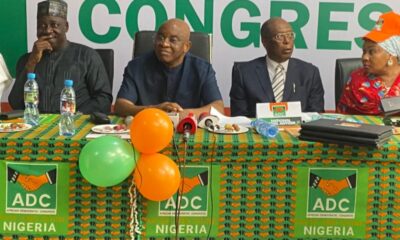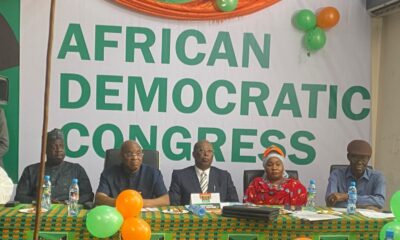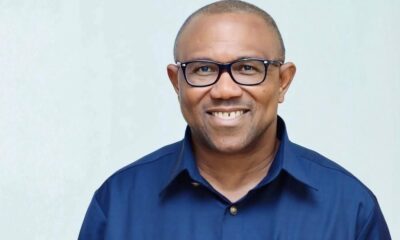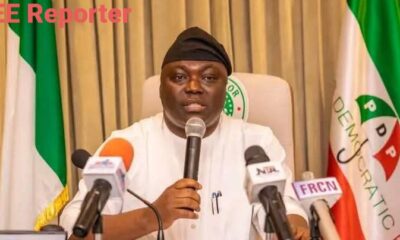Economy
Nigeria Must Amend Existing Electoral Laws, To Inspire Confidence
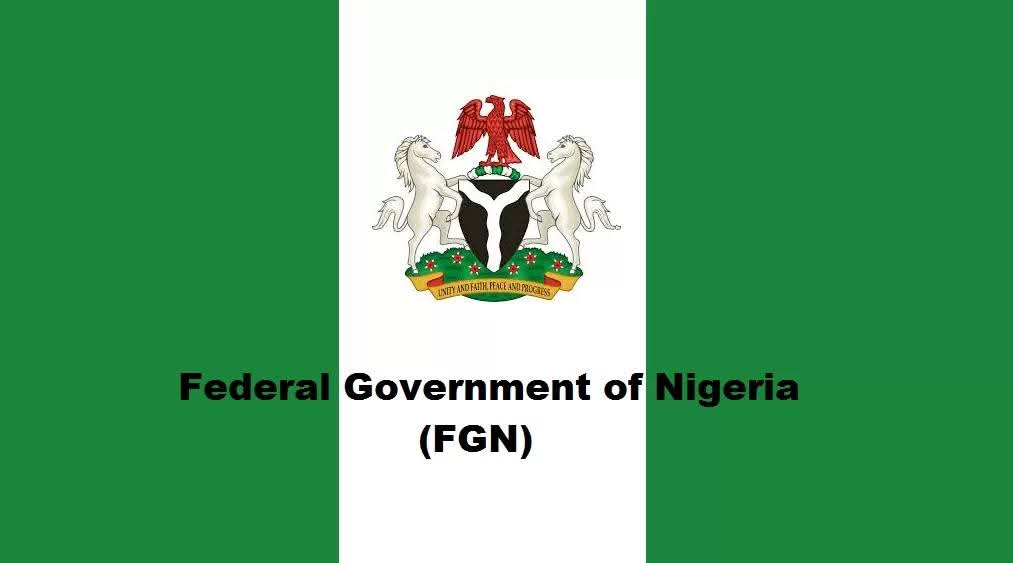
Nigeria Must Amend Existing Electoral Laws, To Inspire Confidence
Nigeria must amend existing electoral laws, To inspire confidence. The feature in a democracy that allows a president-elect or governor-elect to be sworn into office despite unresolved court challenges would overstretch logic anywhere.
Nigeria’s electoral laws need fixing. Granted, there is no perfect human law anywhere, but since modern societies institute laws to regulate their affairs, determined democracies all over the world routinely adjust their laws, especially those that directly impact the overall well-being of citizens, to reflect the dynamism of human societies.
By so doing, existing lacunae in their laws are fixed for the good of citizens. Sadly, it is hardly so in Nigeria, where any lacunae in the extant laws are usually manipulated by politicians for ulterior motives.
Take the constitutional provisions, for instance, as they apply to the assumption of office of a newly elected president or governor. The provisions enable certain peculiarities, which cast a serious question mark on the country’s democratic credentials.
Its overall impact on governance is such that even those who choose aloofness in political matters cannot ignore it. Viewed dispassionately, the only conclusion it would elicit is that it diminishes the country’s democratic credentials. Yet, that reality seldom triggers any agitation for a change in the laws that permit it.
The very feature in a democracy that allows a president-elect or governor-elect to be sworn into office and assume unfettered executive powers, notwithstanding that their election is still being challenged in the courts by their co-contesters, would overstretch logic anywhere. Yet, the 1999 Federal Republic of Nigeria Constitution may have unwittingly endorsed the feature by not specifically providing otherwise.
By the provision of section 132 subsection two of the Constitution, “An election to the [office of the president] shall be held on a date not earlier than sixty days and not later than thirty days before the expiration of the term of office of the last holder of that office.”
The leeway provided by the Constitution as the country’s grundnorm, by not barring the assumption of office pending a legal challenge of a presidential or gubernatorial election, is all the unscrupulous politicians need to justify the practice.
Otherwise, if politicians were driven by altruism, they would have long sought to amend the referenced provision, given its glaring drawback, to afford every contestant a level playing field.
Beginning May 29, 1999, when the Fourth Republic was birthed with the swearing-in of Olusegun Obasanjo as president, the date has conventionally become the commencement date for the tenure of the president and state governors.
Hence, a four-year tenure is reckoned, with May 29 as the starting and ending point for the presidents and governors, except for a few states where different dates operate, owing to court judgments that nullified governors’ elections after the May 29 swearing-in date.
From a constitutional standpoint, 30 days before the expiration of presidential tenure on May 29 is April 29. That is the date beyond which an election to the president’s office cannot validly hold. A 30-day period is enough for all activities or ceremonies to usher in a new administration.
But hardly any election in Nigeria is devoid of court challenge, which invariably drags on for a period much longer than the constitutionally-provided 30-day period that precedes the presidential swearing-in. This situation forces a fait accompli on the country to swear in the president-elect even while cases against his election are still pending in the courts.
The Constitution further provides under section 285: 21 days after the declaration of results by the Independent National Electoral Commission (INEC), a dissatisfied candidate is mandated to file their petition against the declared winner – (subsection (5), and the court of first instance (election tribunal) is mandated to deliver its judgment 180 days therefrom – subsection (6).
Then, where there is an appeal against a decision of an election tribunal, the appellate judgment must be delivered within 60 days of the tribunal judgment – subsection (7). Despite these timelines, the declared winner will assume office and take control of all the levers of presidential power as provided in the Constitution.
On assumption of office, the declared winner who has transformed as president would make appointments at his pleasure, and most often, to enable him to exercise such power, he would equally terminate existing appointments.
With the president fully in charge of national affairs, including managing finances, even the defence of the suits challenging his election is financed from the federal government’s coffers. Meanwhile, his challengers are unduly disadvantaged as they bear the enormous financial responsibility of prosecuting their cases.
It is not rocket science that an appointee usually owes loyalty to the appointment maker. Such appointees would ordinarily reciprocate by deploying all means to ensure the continuity of the incumbent’s office and concomitantly safeguard their appointments. The situation denies a level playing field to the challengers of electoral victors.
Which Nigerian politician will not go to any extent to retain the power he has tasted, not least presidential powers? Certainly not in a system that operates with a scant attempt at masking the impression that institutions can be corruptively manipulated or influenced to achieve a purpose.
Being aware that such an uneven playing field awaits every contestant, it has continually been the case that electioneering in Nigeria evokes the biblical scenario of the violence taking it by force.
The historical experience that demonstrates the insuperability of getting a presidential election nullified and a sworn-in president sacked gives election manipulators the fiendish confidence to deploy unimaginable violence to ensure that they are declared winner. When that goal is achieved, the declared loser is dared to go to court. In Nigeria, being so dared is a derisive way of expressing the futility of the recourse to the challenger.
Indeed, it has never happened that a presidential election was nullified or overturned by a court in Nigeria. Yet, it cannot be the case that the declared winner of every presidential election won.
Curiously, as glaring as it is that the system encourages and rewards electoral cheaters, and despite its resultant dent on the integrity of the electoral process, public discourses hardly centre on the anomaly, unless during the period immediately following the declaration of election results.
It is not expected that the beneficiaries of a flawed system would be at the forefront of agitations to change it, but what about the electorate who are unjustly denied the true result of elections? Many may have given up on the electoral system with the attitude that votes do not count. But such an attitude can only wreak incalculable havoc on the democratic process.
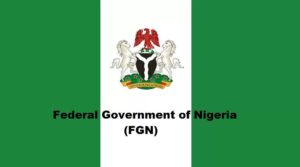
Power In Health Sector
It assaults the very essence of democracy for a candidate whose election is being disputed to sit comfortably in office and deploy the resources and machineries of the state to counter his challengers. The constitutional provision that allows such should elicit citizens’ outrage and galvanise them to demand its adjustment.
Therefore, a reform of the electoral system is direly needed, producing only a president that, once sworn-in, would not be encumbered by any uncertainty about the continuity of his office.
Against this background, it has become compelling that the relevant sections of the Constitution be amended to eliminate all incongruities.
The president that will emerge from the next general elections in 2027 should be one whose four-year tenure is devoid of the possibility of judicial nullification.
That possibility can only be guaranteed if the Constitution provides enough time for elections to hold and the petitions emanating therefrom are disposed of before swearing in.
Having reckoned 180 days and 60 days as adequate to do so from the tribunal through the appellate court, the litigation processes should accommodate the exact number of days before swearing-in. In other words, the presidential election has to occur mandatorily no later than 240 days to May 29.
Onyema Omenuwa is an Abuja-based legal practitioner.
Abuja
Strike: Normalcy Returns At FCT Secretariat As Workers Resume
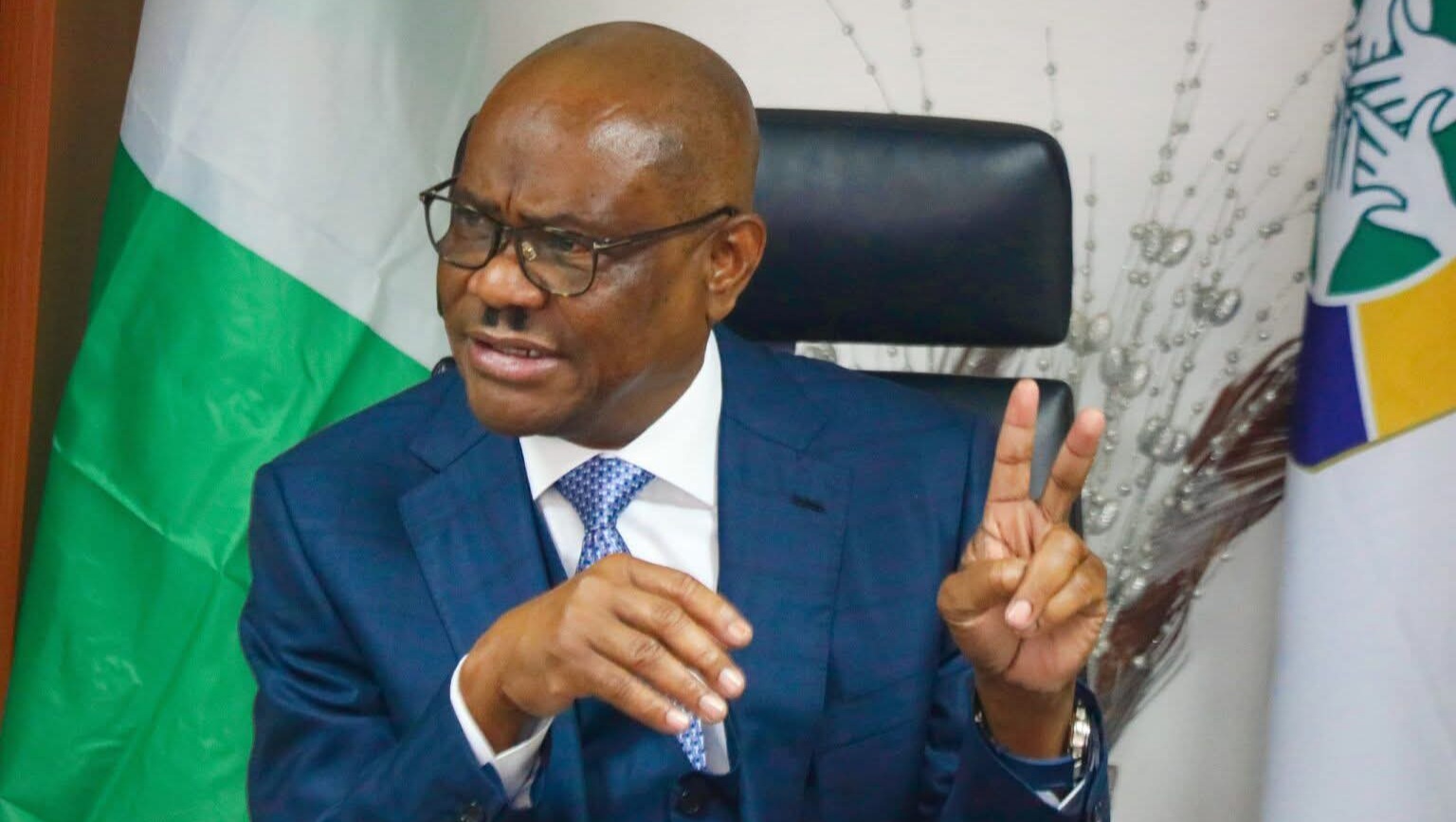
Strike: Normalcy Returns At FCT Secretariat As Workers Resume
Strike: Normalcy returns at FCT secretariat as workers resume. The FCTA secretariat is bustling with activities as normalcy returns after the suspension of the planned solidarity protest by labour unions on Tuesday.
The secretariat of the Federal Capital Territory Administration is bustling with activities as normalcy returns after the suspension of the planned solidarity protest by labour unions on Tuesday.
The protest was suspended after a truce was reached between FCT minister Nyesom Wike and the labour unions in the early hours of Tuesday.
The workers, who resumed work on Monday, were seen carrying out their activities and providing various services.
A visit to some offices in the Minister’s Block, the Treasury Department, the Federal Capital Development Authority, the Abuja Geographical System, and others on Wednesday showed that workers were at work, carrying out their duties.
The FCTA workers under the Joint Union Action Committee had on January 19 embarked on industrial action over unresolved welfare concerns.
The strike, however, was halted by a ruling of the National Industrial Court on January 27, which ordered the workers to resume work, a decision that didn’t sit well with the union leaders, who insisted that the strike must continue.
A truce was reached after several hours of meeting, from late night Monday to the early hours of Tuesday, between the union leaders, officials of the FCTA, Mr Wike, and the chairman of the Senate Committee on FCT, Mohammed Bomoi.
Reacting to the truce, the minister told journalists after inspecting some ongoing projects in Abuja on Tuesday that there were no winners or losers.
He expressed delight that the union leaders have seen the realities on the ground, which have helped to clear misconceptions.
“I’m happy that the trade union and labour congress came to see things for themselves. Sometimes it’s good. What they were told is not really what’s on the ground.
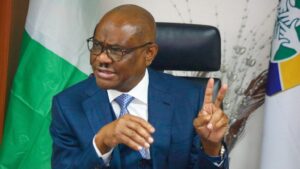
Wike
“But by and large, we have had a good meeting, and they’ve directed the workers to go back to work, which you can see has been done. So, we’re happy that at the end of the day, there is no winner, no loser. It’s in the interest of Abuja to progress,” he said.
The organised labour had on Tuesday resolved the dispute between JUAC and Mr Wike, leading to the immediate resumption of work by affected employees.
A circular, jointly signed by the secretary-general of the TUC, Nuhu Toro, and the acting general secretary of the NLC, Benson Upah, stated that the minister assured labour of mutual respect and sustained engagement on labour-related matters in the FCT.
It said the parties also agreed that no worker would be victimised for participating in the strike action and that all outstanding cases at the National Industrial Court would be withdrawn immediately.
Following the agreement, the NLC and TUC directed all affected workers to resume duty without delay.
Economy
Lagos Assembly Strongly Seeks Suspension Of Makoko Demolition
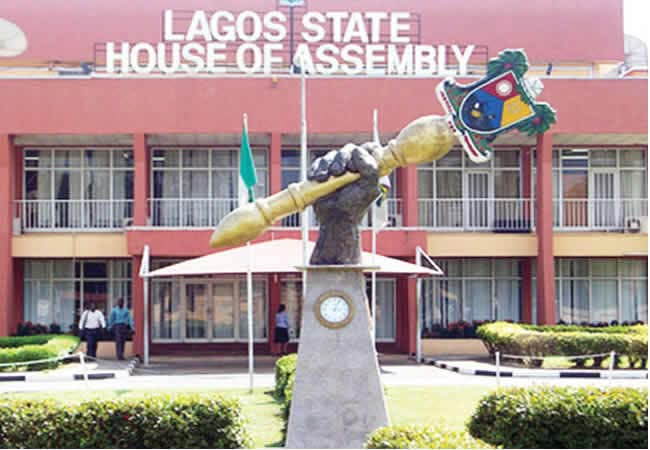
Lagos Assembly Strongly Seeks Suspension Of Makoko Demolition
Lagos assembly strongly seeks suspension of Makoko demolition. The Lagos state house of assembly has called for the suspension of demolition activities in Makoko, Oko-Agbon and Shogunro waterfront communities following protests by displaced residents and growing public concern over the exercise.
The call was announced on Tuesday by Noheem Adams, chairman of an ad hoc committee set up by Mudashiru Obasa, speaker of the house, during a stakeholders’ meeting held at the Lateef Jakande auditorium.
Adams called on all state ministries to cease demolition work and promised compensation to the affected residents.
“On behalf of the speaker and all 40 members of the house, we are directing that all demolitions in Makoko, Oko-Agbon, and Shogunro communities should stop from today until further notice,” New Telegraph quoted Adams as saying.
He called for transparency by demanding the full list of taskforce members and the criteria used for engagement, insisting that residents must be actively involved in the process.
“That the taskforce that was constituted, we want to see the list of the taskforce because we want the residents to be duly involved and to be carried along. So we want to have the schedule of those task forces and the criteria for those that we are inviting,” Adams added.

Lagos Assembly
“To the residents of Makoko, Oko-Agbon and Shogunro communities, as your representatives, we are giving you all assurances that they will stop demolitions henceforth and there will be compensations for all those whose properties have been demolished.”
Stephen Ogundipe, member of the ad-hoc, said there is need for clear communication, adding that residents targeted for relocation or redevelopment must be informed of the government’s plans in advance.
Babatunde Olajide, special adviser to governor of Lagos on E-GIS and urban renewal, confirmed that $2 million had been earmarked since 2021 to transform Makoko into a modern, internationally compliant water city.
He said enumeration of affected properties is underway and reiterated the administration’s commitment to handling the situation with a human face, prioritizing resident safety and fair compensation.
Yusuf Sagra, baale of Makoko, described the assembly’s decision as a “word of peace,” while Orioye Ogungbure, another leader of the community, praised the “democratic responsiveness” of the government.
Crime
EFCC Arrests Kannywood Star, Samha Inuwa for Alleged Naira Mutilation In Viral Video
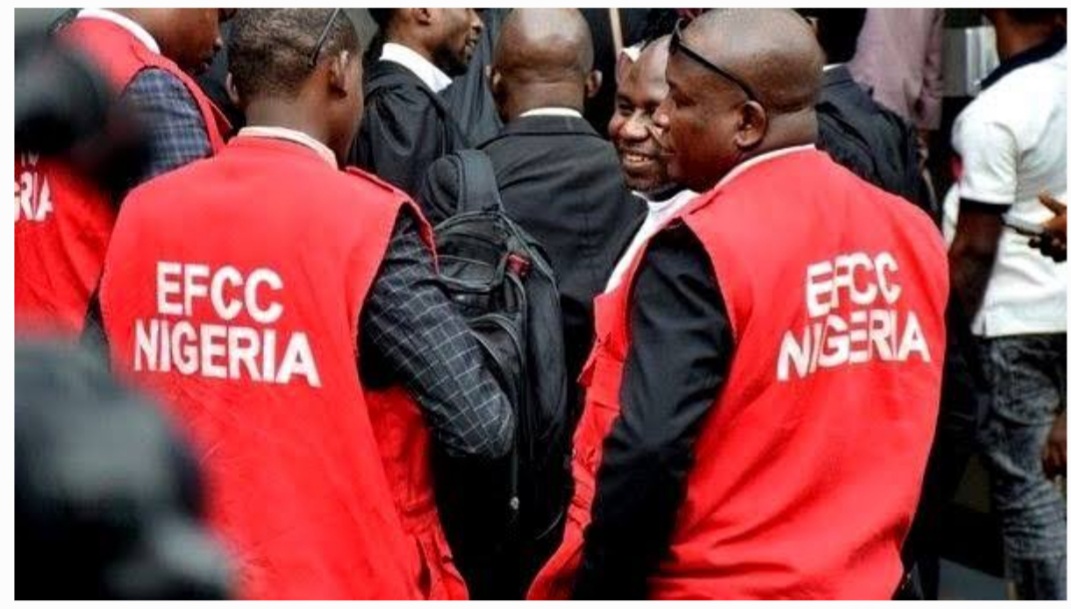
EFCC Arrests Kannywood Star, Samha Inuwa for Alleged Naira Mutilation In Viral Video
EFCC arrests Kannywood Star, Samha Inuwa for alleged naira mutilation in viral video. The Kano Zonal Directorate of the Economic and Financial Crimes Commission, EFCC, on Tuesday, February 3, 2026 arrested a Kannywood Star, Samha Inuwa over alleged Naira mutilation.
Inuwa was arrested following a viral video circulated on social media platforms where she was seen conspicuously cleaning mucus from her nose using Naira notes.
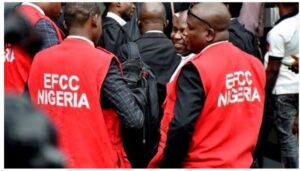
EFCC
Following the release of the viral video, the Commission swung into action by tracing and subsequently arrested her to answer questions.
She is currently being held at the Commission’s detention facility while investigation is ongoing.
The suspect will be charged to court upon conclusion of investigations.
Dele Oyewale
Head, Media & Publicity
February 3, 2026
-
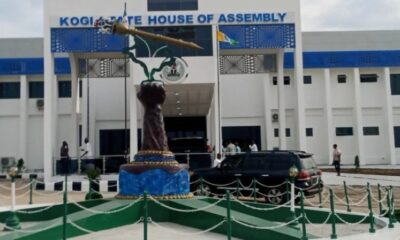
 Crime9 months ago
Crime9 months agoKogi Assembly Considers Law To Regulate Rent, Establish Control Board: Tenancy Law
-
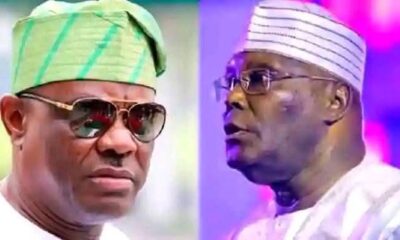
 News10 months ago
News10 months agoAtiku Reveals Why He Failed To Pick Wike As Running Mate In 2023
-

 Crime12 months ago
Crime12 months agoFederal High Court Jails 2 For Vandalizing Transformer, Telecom Mast In Kogi
-
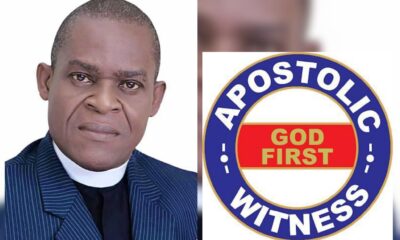
 Akwa Ibom1 year ago
Akwa Ibom1 year agoThe Apostolic Church Gets New Territorial Chairman, Exco
-
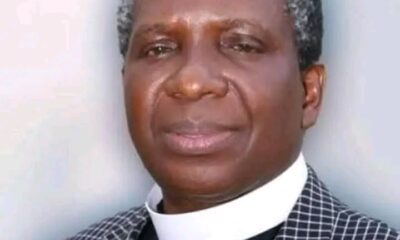
 News12 months ago
News12 months agoThe Apostolic Church Gets New National President, Executive
-
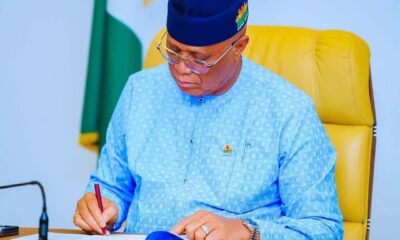
 Akwa Ibom1 year ago
Akwa Ibom1 year agoUmo Eno Commences Payment Of 80,000 Naira Minimum Wage With Arrears
-
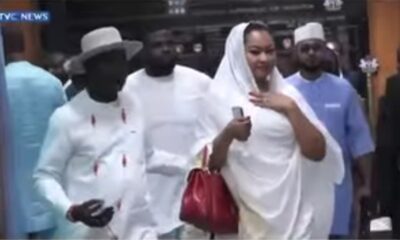
 News11 months ago
News11 months agoSenator Natasha Returns To Senate With Husband Amid Seat Dispute
-
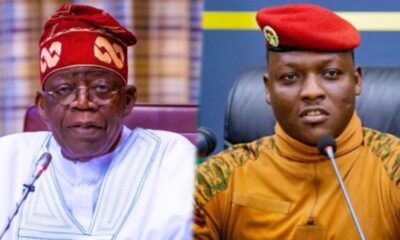
 Economy9 months ago
Economy9 months agoKiyosaki: Is Tinubu’s Government Afraid Of Ibrahim Traore?



